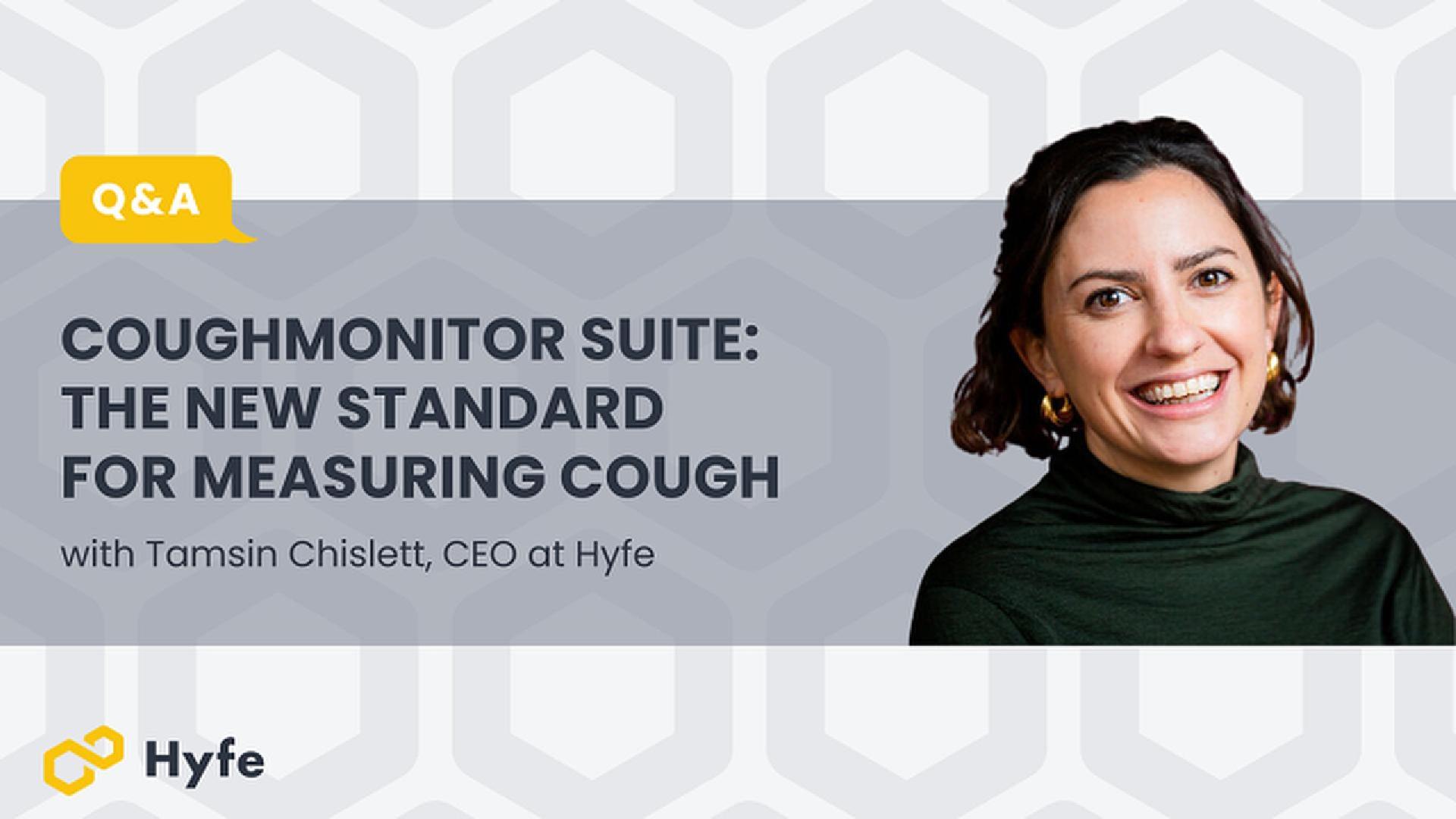Cough Monitoring and Lung Cancer

Cough is the most common symptom in Lung Cancer, along with coughing up blood, chest pain, shortness of breath and unexplained weight loss (ref)
Yet, cough in Lung Cancer is under-researched and under-managed (ref).
The cough associated with lung cancer starts subtly and tends to change in character over time, becoming more persistent or severe. Many cases are diagnosed at an advanced stage due to this subtle onset of symptoms.
Lung Cancer' s High Societal Cost
- Lung cancer is the leading cause of cancer-related deaths worldwide
- An estimated 238,340 people (117,550 men and 120,790 women) will be diagnosed with lung cancer in the United States in 2023.
- Smoking is the leading cause of lung cancer, responsible for approximately 85% of all cases.
- In the U.S. the average cost of lung cancer treatment in the first year following diagnosis is around $70,000/ person.
- Advanced stages of the disease incur significantly higher costs due to more intensive treatments like targeted therapies or immunotherapies.
- The US average of people alive five years after a lung cancer diagnosis is 26.6%.
- Only about ¼ of lung cancer cases are diagnosed at an early stage when the five-year survival rate is much higher (63%).
- 44% of cases are not caught until a late stage when the survival rate is only 8%.
- Lung cancer screening for high-risk individuals (currently done using low-dose CT scans) can reduce the lung cancer death rate by up to 20%. However, less than 5% of those eligible are actually screened in the US. Much less elsewhere in the world.
Sources: American Cancer Society, Centers for Disease Control and Prevention (CDC), American Lung Association.
Continuous, Unobtrusive Cough Monitoring in Lung Cancer Management
Cough is among the most common and earliest symptoms of lung cancer, reported in three quarters of lung cancer cases at the time of diagnosis. However, because cough is a common symptom of many less serious conditions, its connection to lung cancer is often overlooked, leading to delayed diagnosis and subsequently affecting treatment options and prognosis.
Lung cancer kills almost three times as many men as prostate cancer and almost three times as many women as breast cancer.
The advent of artificial intelligence (AI) in healthcare has opened up new avenues for understanding and managing complex diseases like lung cancer as well as new ways to screen and detect symptoms early. Modern cough monitoring technology, such as the one built by Hyfe, is leveraging AI algorithms and unlocking unprecedented opportunities for the early detection of lung cancer, treatment optimization, and management of treatment-related complications. It also makes it not only possible but also convenient and affordable to conduct long term, continuous, unobtrusive cough monitoring for anyone, anywhere in the world.

Early Detection of Lung Cancer
A persistent cough, particularly in smokers or former smokers over the age of 40, significantly increases the risk of lung cancer. CT screening - the standard of care for high risk individuals, is expensive and inconsistent, and less than 5% of eligible people in the US actually do it. Cough monitoring is significantly more convenient and more affordable and something that high risk individuals - or anyone else, really - can easily set up for themselves or in collaboration with their medical provider.
One of the most exciting opportunities related to continuous cough monitoring is the realistic potential for early lung cancer risk detection. Lung cancer in particular - notorious for its asymptomatic nature in early stages often leads to late diagnoses and poor prognosis. AI-driven cough monitoring can identify subtle changes in cough patterns – rate, frequency, and sound – that may be imperceptible to the human ear. By detecting these minute changes, particularly in high risk individuals, cough monitoring can help flag early lung cancer signs, even before other symptoms manifest. This ability to screen consistently can lead to early detection and conversely, improving treatment outcomes, as early-stage lung cancer is typically more treatable and has a higher survival rate.
Optimization of Treatment
During the treatment phase, continuous cough monitoring serves as a powerful tool in personalizing patient care and monitoring treatment. Different patients respond variably to cancer treatments, and cough patterns can provide real-time feedback on treatment efficacy. AI algorithms analyze cough data in real time to help clinicians make informed decisions about adjusting treatment protocols. This ensures that patients receive the most effective treatment with minimal side effects, enhancing the overall quality of care.
Treatment-Related Complications
Cough monitoring helps identify asthma patients with excessive coughing, which may represent a neuro-phenotype and hence developing treatment for this symptom is important for reducing the burden of disease on patients’ lives and currently represents a major unmet clinical need. (ref)
Post-Treatment Surveillance
For lung cancer survivors, the journey doesn't end with the completion of treatment. There's always a risk of recurrence. Continuous cough monitoring offers an additional layer of surveillance for survivors. By tracking cough patterns post-treatment, cough monitoring supports in the early detection of a recurrence, facilitating an early intervention and significantly improving the chances of successful treatment.
Cough Monitoring with Hyfe
Continuous, unobtrusive cough monitoring, empowered by AI, presents a generational opportunity in the battle against lung cancer. From enabling early detection to optimizing treatment protocols, managing treatment-related complications, and monitoring for recurrence, cough monitoring is a fantastic tool for enhancing patient care. As we continue to integrate such solutions and redefine standards of care, the future of lung cancer management looks more promising.
Hyfe (www.hyfe.ai) builds software that detects coughing via audio analysis on phones, watches, wearables, and other devices with mics. Cough detection is fully automated, using AI algorithms trained on the sounds of coughs of tens of thousands of individuals. Since the system runs fully on-device, no audio data is sent to servers, thereby ensuring full patient privacy. By using Hyfe’s technology to detect and quantify cough, healthcare organizations seeking to roll out or improve CHF remote patient monitoring can improve outcomes and cut costs.
Hyfe Leads the Scientific Conversation Around Cough:
Scientific Validation of Hyfe's Cough Monitoring Technology
Cough Monitoring for Other Indications
Our latest news
Lorem ipsum dolor sit amet, consectetur adipiscing elit. Non eget pharetra nibh mi, neque, purus.




